When it comes to measuring electrical currents, many people use the terms multimeter and voltmeter interchangeably. However, there are important differences between these two devices.
First, a voltmeter is used specifically for measuring voltage or potential differences in an electrical circuit. A multimeter, on the other hand, can measure not only voltage but also current and resistance.
Additionally, a voltmeter has a much higher input impedance than a multimeter. This means that using a voltmeter will have less of an impact on the circuit being measured.
If you’re a DIYer, then you know the importance of having the right tools for the job. When it comes to measuring voltage, there are two main types of meters: multimeters and voltmeters. So, what’s the difference between these two tools? In this blog post, we will discuss the differences between multimeters and voltmeters, as well as when each tool is best used.
What Is A Multimeter
Analog Multimeter
It can measure voltage, current, and resistance, as well as perform tests for continuity and capacitance. It is often used by electricians to test and troubleshoot circuits.
Digital Multimeter
In recent years, digital multimeters have become more common than analog versions. These use LCD screens to display measurements instead of a needle on a dial. Digital multimeters are also able to store readings and offer more precise measurements.
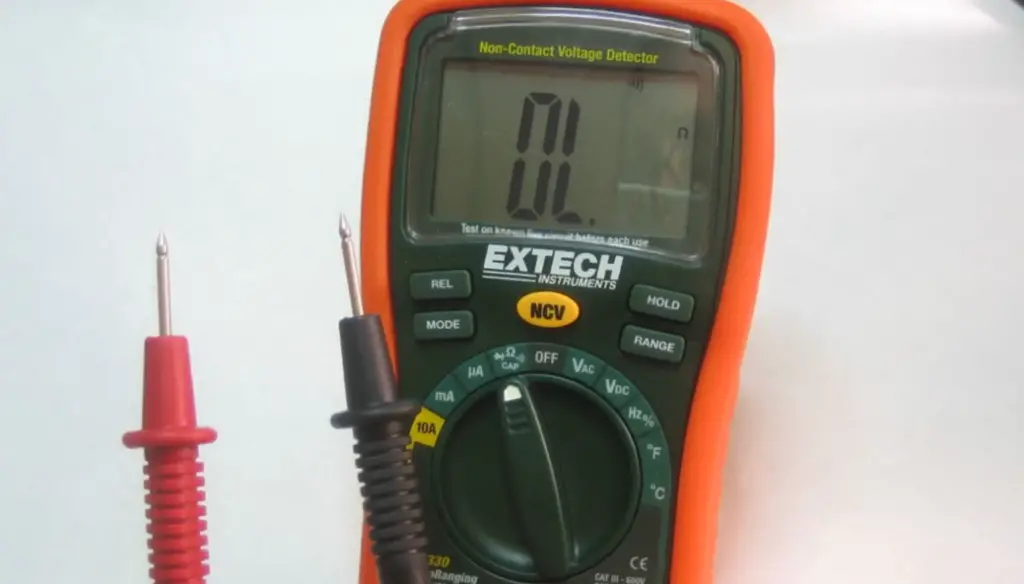
What Is A Voltmeter
Analog Voltmeter
It can be either analog or digital, but an analog voltmeter uses a needle and calibrated scale to display the measurement. And it must be connected in parallel to the circuit being measured.
Digital Voltmeter
A digital voltmeter displays measurements as numbers on a screen, using digital technology. Also, a digital voltmeter often offers additional features, such as the ability to measure resistance and current. And it can be connected in series or parallel to a circuit.
Similarities Between Voltmeter And Multimeter
Both voltmeters and multimeters measure voltage. They also often have similar designs, with a digital display screen and various ports for connecting to the circuit being measured. And both can be used for basic electrical troubleshooting and testing.
In addition, both types of devices can measure resistance and many multimeters also have the ability to measure current. Make sure to check the specifications of your multimeter to ensure it has this capability.
You should also know that both devices require the use of proper safety precautions when handling electricity.
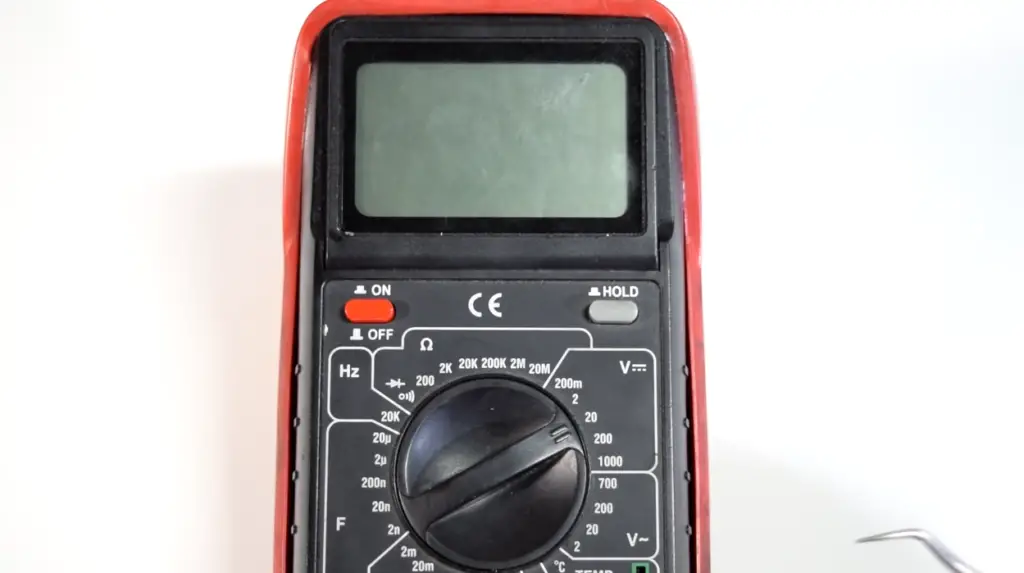
Difference Between Multimeter And Voltmeter
Functionality
A voltmeter, on the other hand, can only measure voltage.
Complexity
Multimeters often have additional features such as testing continuity and measuring capacitance or temperature. They also tend to have more complex settings and displays compared to voltmeters.
Circuit Connection
Multimeters can be connected in either series or parallel in a circuit, while voltmeters must always be connected in parallel. A multimeter is a more versatile and advanced tool for measuring electrical properties, but a voltmeter can still suffice for basic voltage measurements. It ultimately depends on the specific needs of the user.
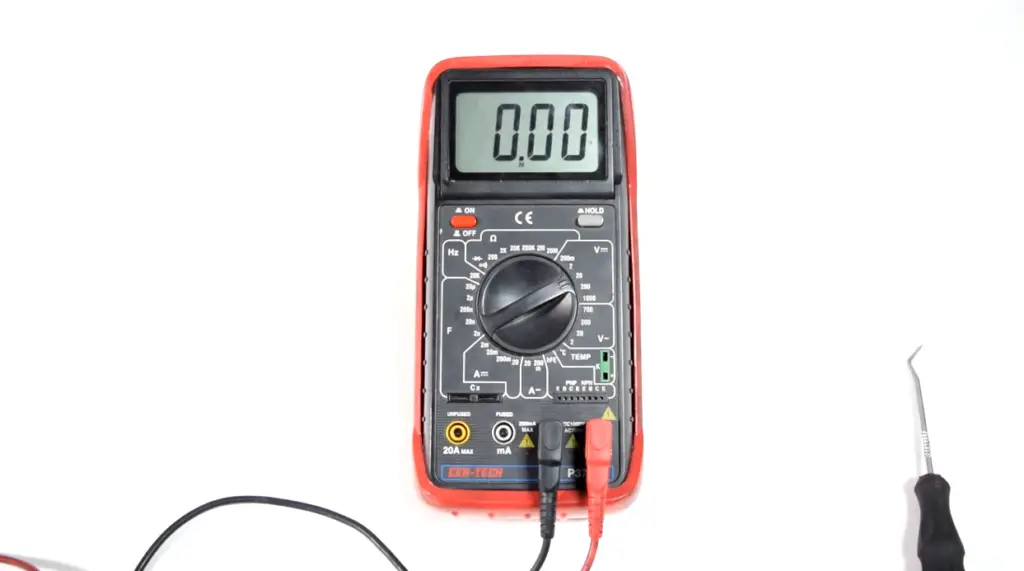
Internal Resistance
Multimeters also have higher internal resistance compared to voltmeters, which can affect the accuracy of the measurements. It is important to consider this factor when using a multimeter for precise measurements.
AC And DC Measurement
Both multimeters and voltmeters can measure both AC (alternating current) and DC (direct current) voltage. However, some multimeters may have specific settings for AC or DC measurement while a voltmeter typically only has one setting for both.
Overall, a multimeter is a more versatile and advanced tool while a voltmeter is more basic and limited in its functionalities. It is important to choose the right device based on the specific measurement needs.
Construction
Multimeters often have a larger and sturdier construction compared to voltmeters. This is due to their added functionalities and the fact that they can be used in various measurement settings. Voltmeters, on the other hand, tend to have a smaller and more compact design.
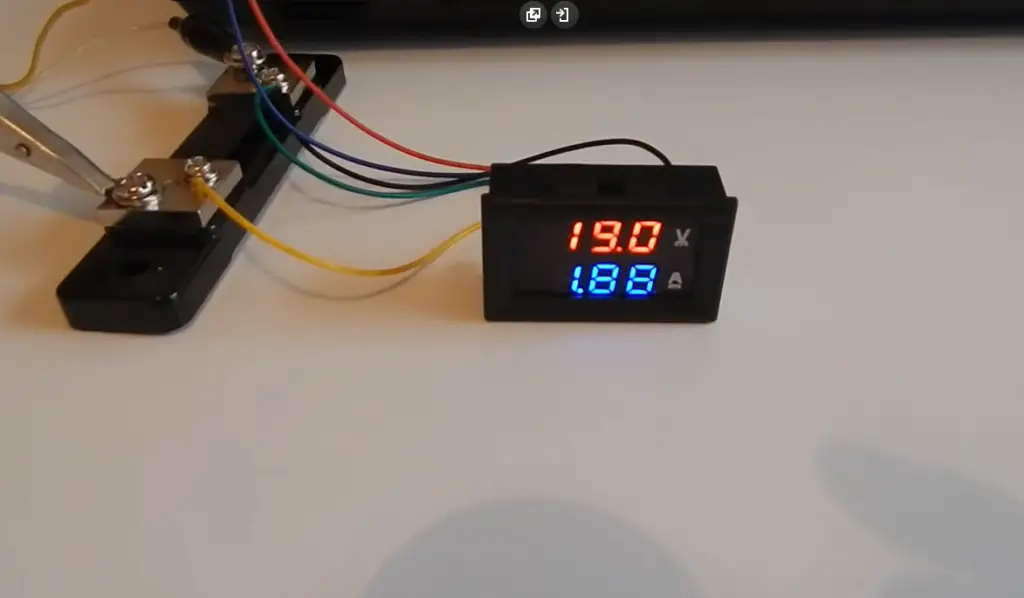
Need Power Supply
Multimeters typically require a power source such as a battery, while voltmeters may also be available in a hand-held, battery-free design. This can make the voltmeter more convenient for portable use.
Size And Portability
As mentioned above, multimeters often have a larger construction and may not be as easily portable compared to a voltmeter. However, there are also compact, hand-held multimeters available for easier portability.
Versatility
In terms of versatility, a multimeter is a clear choice as it can measure various electrical properties while a voltmeter is limited to just voltage. However, for more specific measurement needs, a voltmeter may be sufficient and preferable for its simplicity and ease of use.
Scale
Multimeters often have a wider range of measurement scales compared to voltmeters. This again relates to their added functionalities and versatility in measuring various properties. Also, the accuracy of the measurement may vary between multimeters and voltmeters. It is important to consider the specific accuracy needs for the measurement task at hand.
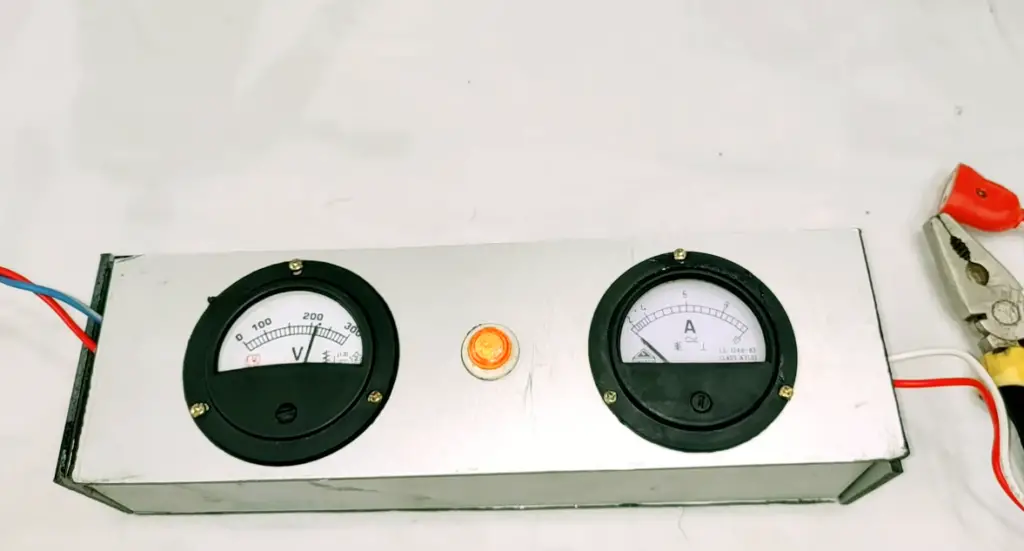
Substitution
A multimeter can’t be substituted for a voltmeter and vice versa. Each device has its own specific functionalities and capabilities, and it is important to use the appropriate tool for the desired measurement. Using the wrong device may result in inaccurate measurements or even damage to the equipment.
Testing Of Diode And Transistors
A multimeter can also be used to test diodes and transistors, while a voltmeter cannot. A diode only allows electricity to flow in one direction, and a transistor can amplify or switch electronic signals. Testing these components with a multimeter involves measuring the voltage drop across them in both forward and reverse directions.
Additionally, multimeters often have additional features such as varying measurement ranges, the ability to measure resistance and continuity, and more advanced functions like temperature and capacitance measurements.
Application
The biggest difference between a multimeter and a voltmeter is the range of applications they can be used for. A multimeter is a versatile tool that can be used in many different situations, while a voltmeter is typically only used to measure voltage.
A multimeter can be used in automotive work, home electrical tasks, electronics troubleshooting, and virtually any situation where electrical measurements need to be taken. On the other hand, a voltmeter may only be useful in certain narrow circumstances where only voltage needs to be measured.
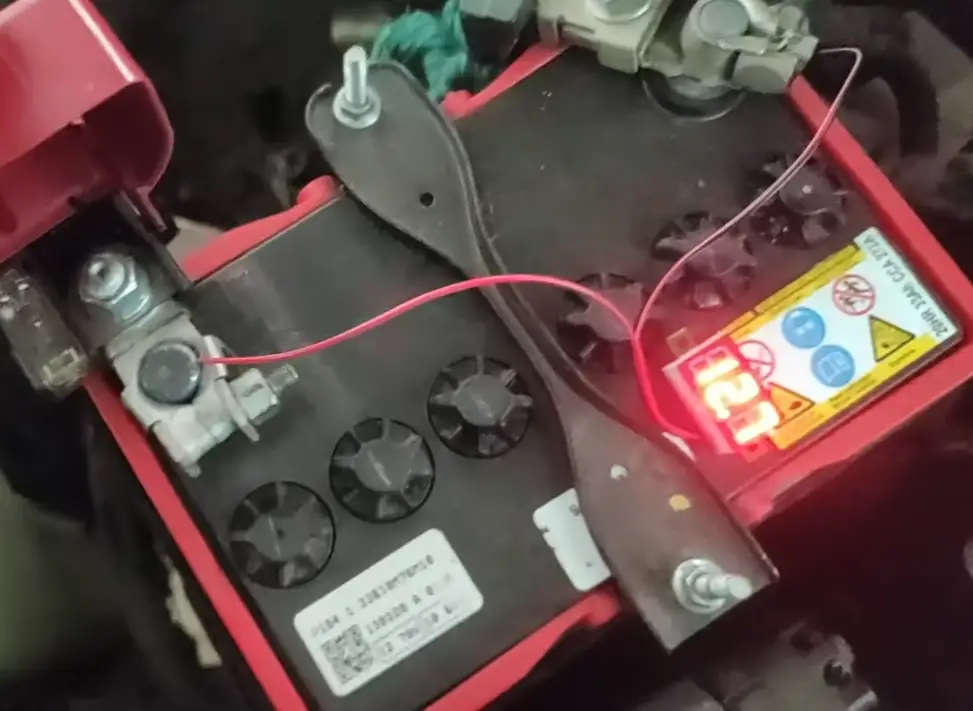
Price
Due to their added functionality, multimeters are typically more expensive than voltmeters. However, for most basic electrical tasks, a simple voltmeter would suffice.
FAQ
When do I need a voltmeter or a multimeter?
A voltmeter is specifically used to measure voltage, while a multimeter can be used for various measurements including voltage, current, and resistance. If you only need to measure voltage, a voltmeter will suffice. However, if you need to measure multiple properties or aren’t sure what you’ll be measuring, a multimeter is the better option.
Can you use a multimeter to measure voltage?
The answer is yes, but there are important differences between a multimeter and a voltmeter. A voltmeter is specifically designed to measure voltage whereas a multimeter has the capability to measure not only voltage but also current and resistance.
Additionally, a voltmeter typically offers more precise measurements and has higher input impedance compared to a multimeter. However, a multimeter is more versatile and can be used for multiple types of measurements.
Why multimeter or voltmeter does not give more accurate indicators?
A multimeter typically measures multiple properties, such as voltage, current, and resistance. A voltmeter, on the other hand, specifically measures voltage.
However, neither a multimeter nor a voltmeter can give extremely accurate readings on their own. This is because they both rely on measuring the change in electrical potential difference (voltage) between two points.
To get more precise measurements, additional instruments, like an oscilloscope or waveform analyzer, may be necessary.
Another factor that can impact the accuracy of a multimeter or voltmeter reading is the quality of the tool itself – a low-quality or malfunctioning instrument will likely give inaccurate results.
Do electricians use multimeters?
Yes, electricians often use multimeters to measure voltage, current, and resistance in electrical circuits. However, voltmeters can also be used for measuring voltage specifically.
A voltmeter, on the other hand, is only able to measure voltage.
Additionally, multimeters usually have a wider range of measurements than voltmeters. This means they can measure both very small and very large values of voltage, current, and resistance.
In general, it is more practical for electricians to use a multimeter for their measurements because it saves them from having to carry or switch between multiple measurement tools.
However, in certain situations where only voltage needs to be measured, a voltmeter may be sufficient and more precise.
What should you not do with a multimeter?
It is important to avoid using a multimeter to measure current. It should only be used for measuring voltage, resistance, and continuity.
Additionally, it is important to not use a multimeter on live circuits or high voltages without appropriate training and safety precautions in place. It is also crucial to properly calibrate the multimeter before each use.
How do you check 240 volts with a multimeter?
First, set the multimeter to measure AC voltage. Then, place the probes on the two hot wires of the circuit (typically labeled “L1” and “L2”). The reading should be close to 240 volts.
It is important to note that a multimeter can also be used to measure DC voltage and other quantities such as resistance and current. A voltmeter, on the other hand, is specifically designed to measure voltage. However, a multimeter is more versatile and can often replace a voltmeter in most situations.
How do I test a circuit with a multimeter?
It can also be used to test continuity and determine if a component is functioning properly.
To use a multimeter for testing voltage, switch the dial to the setting labeled “V” or “VOLT”. Attach the red lead to the positive terminal and the black lead to the negative terminal. The display will show the voltage of the circuit.
To test for current, switch the dial to “A” or “AMPS”, and attach the leads as before. The display will show the current flowing through the circuit.
How do you test if a wire is live with a multimeter?
First, make sure the multimeter is set to measure voltage. Then, touch the probe or wire leads to the wire you want to test. If the displayed reading is not 0, then the wire is live and has voltage running through it.
A voltmeter, on the other hand, can only measure voltage. It cannot perform other measurements like a multimeter can, such as measuring resistance or current. Additionally, a voltmeter must be connected in series with the component being measured in order to get an accurate reading. This means that it may not be suitable for testing live wires since it could potentially cause harm to the user.
How do I test if my multimeter is accurate?
There are several ways to test the accuracy of your multimeter. One way is to use a known reference voltage, such as a battery, and compare the measurement on your multimeter to the actual voltage value.
Another method is to use a calibration device, which can be purchased or sometimes obtained through a calibration service. It’s important to regularly check and calibrate your multimeter for accurate measurements.
What does 6000 counts mean on a multimeter?
A count on a multimeter is a unit used to measure resolution. In this case, a multimeter with 6000 counts means it can accurately measure up to 6,000 individual units of voltage, resistance, or other measurements. This level of resolution allows for more precise readings.
On the other hand, a voltmeter typically only has a maximum resolution of 199 or 1999 counts. This lower resolution may be sufficient for basic voltage measurements, but may not be accurate enough for more detailed analysis and troubleshooting.
How do you calibrate a multimeter?
When calibrating a multimeter, it is important to first consult the user manual and follow the specific instructions for your model. Generally, however, the process involves connecting the meter to a known voltage or resistance, adjusting the meter’s settings accordingly, and then repeating with different values. It is also important to periodically check and recalibrate your multimeter to ensure accurate readings.
In comparison, a voltmeter does not need to be calibrated as it is solely used for measuring voltage. However, it is still important to periodically check its accuracy by comparing readings with those of a known, calibrated source.
What does OL mean on a multimeter?
“OL” stands for “overload” and it indicates that the measured value is too high for the current settings on the multimeter. It is important to check the settings and make sure they are appropriate for the measurement before attempting again.
How can you tell if a wire is live or neutral?
To test a live wire you should use a multimeter or a voltmeter. While they may appear to serve the same function, there are key differences.
A voltmeter is used to measure voltage, while a multimeter has the ability to measure various electrical values such as voltage, current, and resistance.
Another difference is that a voltmeter has higher accuracy and sensitivity compared to a multimeter. However, a multimeter is more versatile and can be used for troubleshooting in addition to measuring voltage.
When it comes to safety, both devices should always be handled with caution. Always make sure the device is set to the correct measurement before use and never touch exposed wires or circuitry without proper protection.
How many ohms is short?
It is not a specific number. Short can refer to any amount of resistance low enough that it allows the flow of an excessive current, potentially causing damage to the circuit or component.
Do multimeters need batteries?
Most multimeters do require a battery in order to function. However, there are also models that can be plugged into an outlet for power.
Can a voltmeter measure current?
No, a voltmeter is only able to measure voltage. To measure current, you would need an ammeter. However, a multimeter is able to perform both voltage and current measurements.
How do you tell if a circuit is 120 or 240?
To tell this you need to measure voltage, and for this task, you have two options: a multimeter or a voltmeter. A multimeter is a versatile tool that can measure voltage, current, and resistance. It also often includes additional features such as temperature and continuity testing. A voltmeter, on the other hand, is specifically used to measure voltage.
Can multimeter test batteries?
A multimeter can test batteries, whereas a voltmeter cannot. A multimeter is a combination tool that can measure voltage, current, and resistance, while a voltmeter can only measure voltage.
In addition to testing batteries, a multimeter can also be used to test electrical circuits and components for proper functioning. On the other hand, a voltmeter is generally used specifically for measuring voltage in an electrical circuit.
Overall, a multimeter is more versatile and useful for general electric troubleshooting purposes, while a voltmeter serves its specific purpose well but may not be as necessary for certain situations.
What is the best cheap multimeter?
While there is no clear answer to this question as it depends on individual preferences and needs, some popular budget options include the Fluke 101 Digital Multimeter, the Etekcity MSR-C600 Digital Multimeter, and the Neoteck Auto Ranging Digital Multimeter.
It is important to note that a multimeter is a device that combines multiple measuring functions, including measurements of voltage, current, and resistance. A voltmeter, on the other hand, only measures voltage.
In addition to choosing a multimeter with desired features at an affordable price point, it is also important to consider factors such as brand reputation and customer reviews before making a purchase decision.
In which case do you use a multimeter?
A multimeter can measure not only voltage but also current and resistance. It is useful for troubleshooting electrical issues and testing the functionality of various components in an electronic circuit.
On the other hand, a voltmeter is specifically used to measure voltage. It can be used in situations where precise voltage measurements are required, such as when calibrating equipment or conducting scientific experiments.
Useful Video: Multimeter vs Voltmeter | Difference Between Voltmeter and Multimeter
References
- https://www.tutorialspoint.com/difference-between-multimeter-and-voltmeter
- http://www.difference.minaprem.com/physics/difference-between-voltmeter-and-multimeter/
- https://chintglobal.com/blog/difference-between-multimeter-and-voltmeter/
- http://www.differencebetween.net/technology/difference-between-multimeter-and-voltmeter/
- https://bestmultimeterreviews.org/voltmeter-vs-multimeter/
- https://chintglobal.com/blog/difference-between-multimeter-and-voltmeter/
- http://www.differencebetween.net/technology/difference-between-multimeter-and-voltmeter/
- https://bestmultimeterreviews.org/voltmeter-vs-multimeter/
- https://www.tutorialspoint.com/difference-between-multimeter-and-voltmeter
- http://www.difference.minaprem.com/physics/difference-between-voltmeter-and-multimeter/




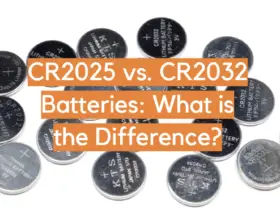
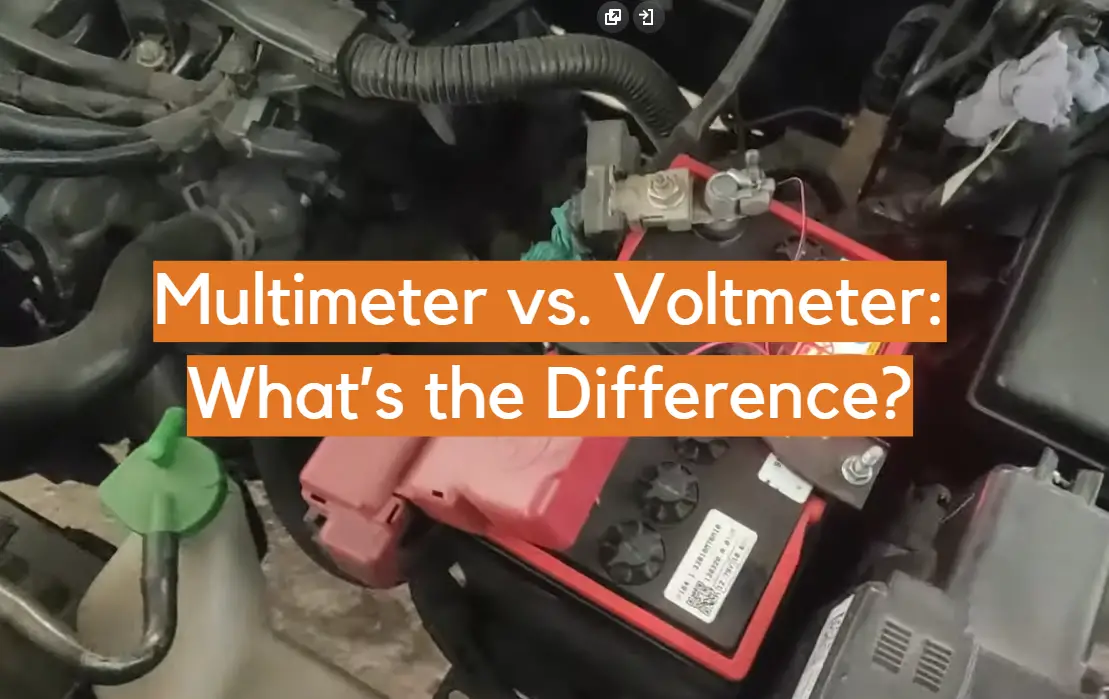








Leave a Reply